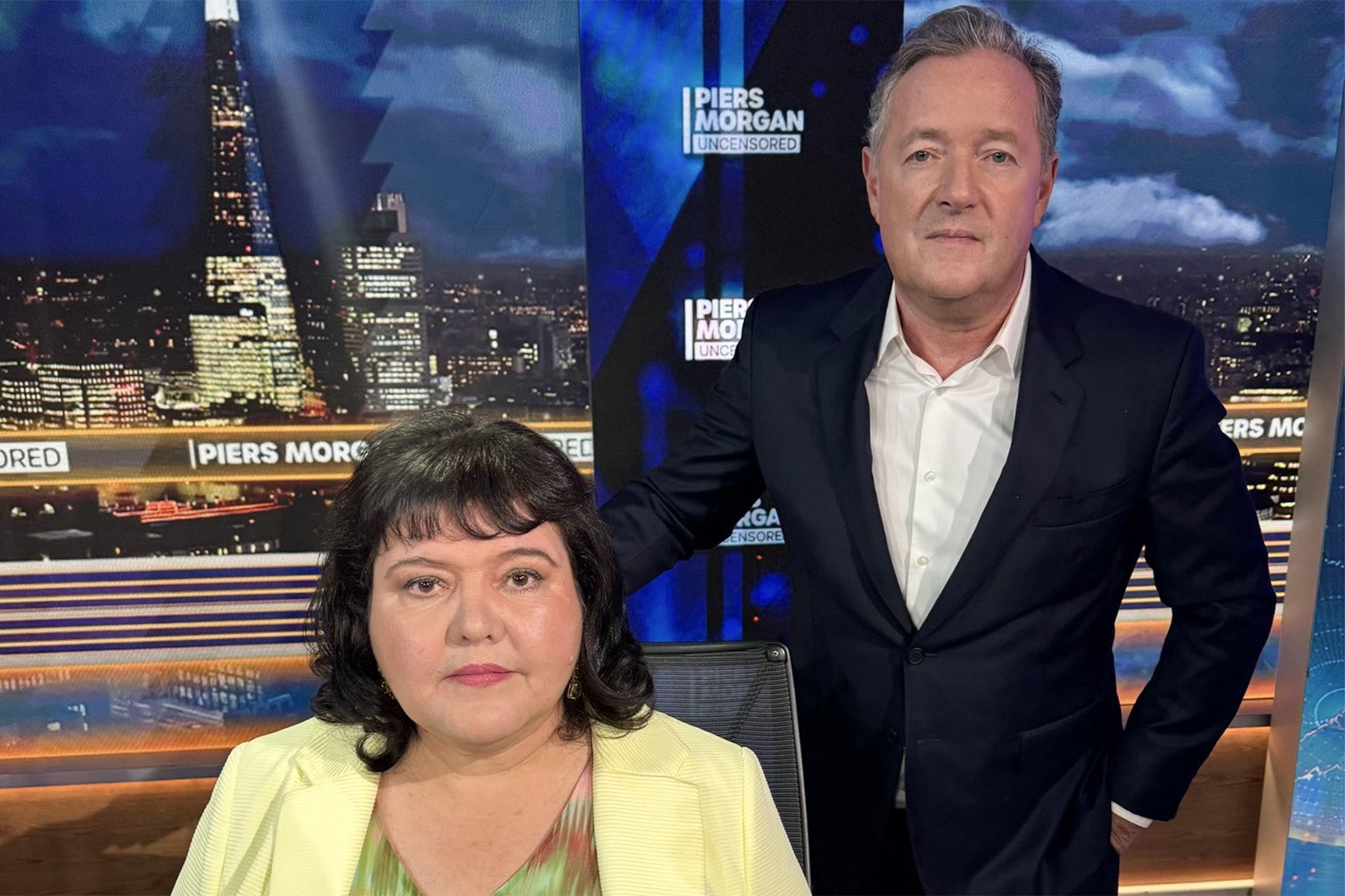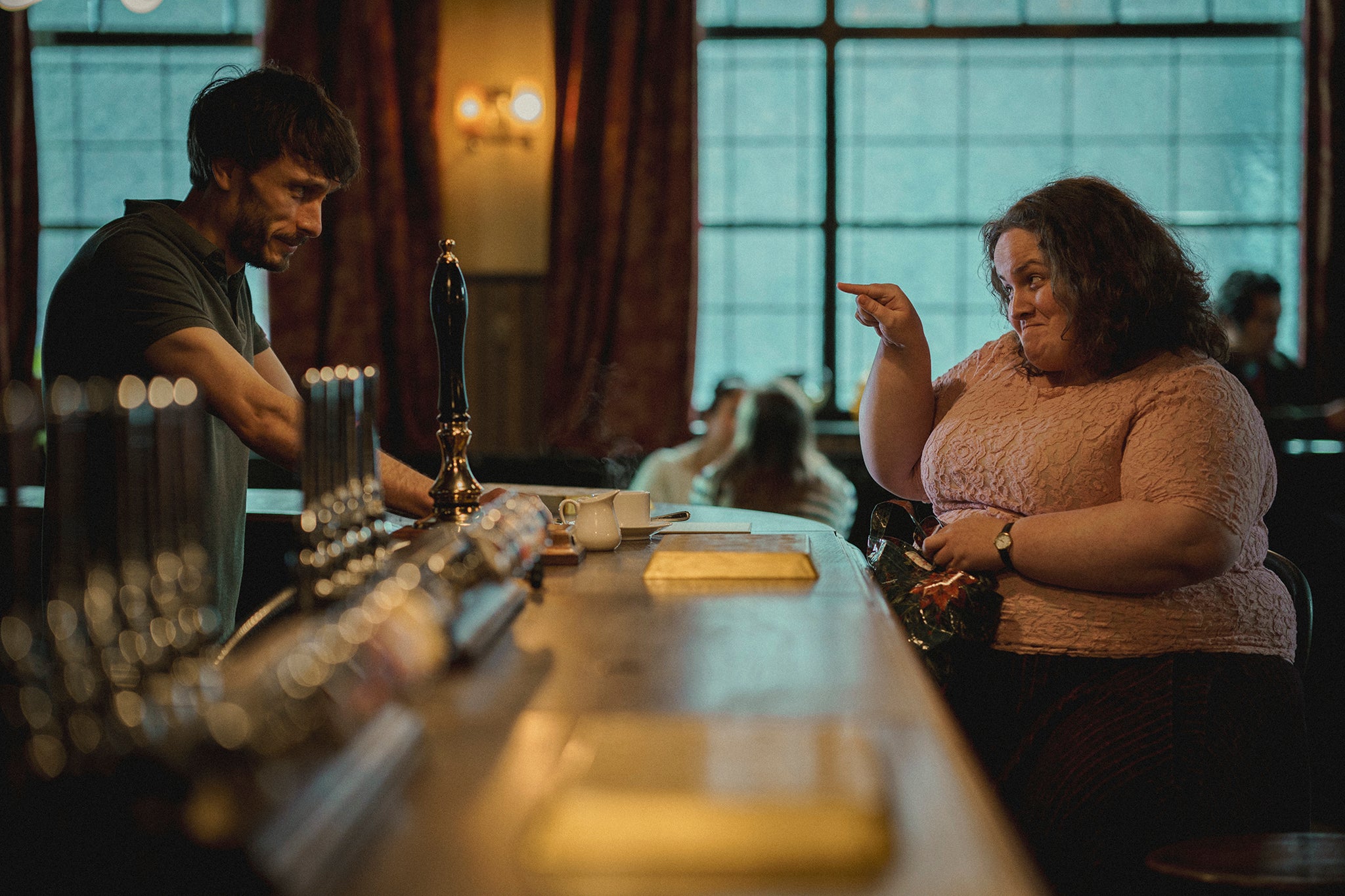Baby Reindeer: Does ‘Real life Martha’ have grounds to sue Richard Gadd and Netflix?
Scottish lawyer Fiona Harvey denies stalking the comedian and sending him over 41,000 emails
“There are a number of people to sue,” the woman accused of being the inspiration behind Richard Gadd’s hit series Baby Reindeer warned.
In an uncomfortable pre-recorded interview with Piers Morgan, Fiona Harvey was forced to deny multiple times that she had stalked the comedian and turned his life to misery by bombarding him with abusive phone calls and emails.
Since airing on Netflix last month, the seven-part series, which was inspired by Gadd’s own experience of being stalked, has enthralled and disturbed viewers.
Within a week, internet sleuths had located the real-life inspiration for the character of Martha, a middle-aged woman who becomes increasingly obsessed with Gadd after he offers her a cup of tea, eventually harassing his parents and partner.

Yet during her interview, she emphatically denied sending Gadd 41,000 emails and over 100 letters, while Netflix had previously claimed that the emails used in the show are the real ones he received during this period of alleged harassment.
Insisting that she had only met the comedian a “handful of times”, she said: “I will be taking legal action against Richard Gadd and Netflix. We have instructed lawyers in part, but we want to explore all of the options out there.”
Speaking to the Independent, Jessica Welch, a media law specialist at Simkins LLP, said that in order to bring a defamation claim against the writer and producers of the show, Ms Harvey would need to prove that she was identifiable.
“Given how quickly individuals online were able to identify Harvey as the real Martha, there are good arguments for her to assert that she was identified in the show,” Ms Welch said.

Identifying features that Ms Harvey could argue led to her publicly being named include the character’s background as a lawyer and her Scottish accent.
“Following the opening scene in the first episode, it is stated that ‘this is a true story’. The question as to whether more ought to have been done depends on the facts, including whether the story is truly a factual depiction of what took place or whether some events/scenes were fictional,” she added.
“Whether Netflix could have been more careful to explain that the show is ‘based on’ a true story or that ‘some events depicted are fictitious’ in those circumstances again depends on what did (or did not) take place.”
“If able to prove that she is identifiable from the show, she would then need to set out the defamatory allegations and how they have caused her serious harm.
“The burden would fall upon Gadd and Netflix to prove that, in fact, the allegations are susbtantially true. That would come down to a question of evidence and disclosure.”

Speaking on Mr Morgan’s YouTube channel, Ms Harvey claimed that she had only sent the comedian “less than 10 emails” and denied that she had ever been convicted of stalking or that she had ever been to prison.
She also added that she had been subjected to trolling and death threats, describing the online abuse as “horrifying” and “misogynistic”.
“On serious harm, Harvey has mentioned the threats and trolling that she has been subjected to. If she can point to this in evidence, it may be enough to get over the statutory requirement,” Ms Welch said.
“So presuming she can demonstrate that she is identified in the show and if it is right that false allegations have been made against her, that may be enough for her to bring a defamation claim against Gadd and Netflix.”
Dan Jennings, a defamation expert at Shakespeare Martineau law firm, also stressed the potential ramifications for armchair detectives who try to track down the real people behind a story.

“It’s imperative that television creators are aware of the risk before entering into agreements with production companies. Richard Gadd had previously been telling his story as a stage show for several years without scrutiny,” he said. “However, with the wider audience brought by television, a loss of control occurred, leading to a frenzied witch hunt that has damaged real reputations in the process.
“In this case, the show did not do enough to disguise Martha’s real identity. Much of the information given in the show was publicly available on her social media pages, and the creators went as far as to hire an actress who resembles her likeness. While the creators may have honestly believed a name change would be adequate, in today’s very online culture, this was misguided at best.”
Speaking of Netflix’s safeguarding responsibilities, Clive Coleman, a senior partner at Maltin PR and a television, stage and film writer, said that writers are normally required to provide warranties that nothing they write is defamatory.
“That means that they will carry out thorough due diligence to ensure any real, living characters are depicted in a way that is non-defamatory,” he said. “Broadcasters will also have editorial guidelines and a duty of care to real people depicted, especially if they are vulnerable individuals.
“Scripts will also be lawyered to guard against legal action. However, in some nuanced cases a calculated decision might be taken that a particular person will not want their life raked over in court and will not take action for defamation over the way in which they are depicted.”
Richard Gadd and Netflix have been approached for comment.
Bookmark popover
Removed from bookmarks